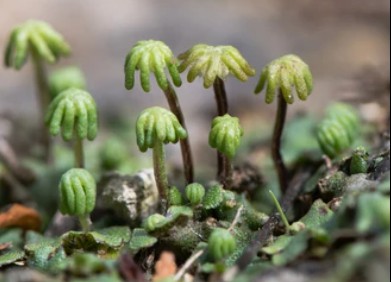Marchantia polymorpha is a fascinating plant species that has captured the attention of researchers worldwide. Belonging to the bryophyte group, it holds a pivotal position in studying plant biology, evolution, and synthetic biology applications. In recent years, various transformation methods have been developed to manipulate its genome, offering valuable insights and applications in plant sciences.
Lifeasible has extensive research and service experience in bryophyte transformation. We offer comprehensive and effective genetic transformation of the Marchantia polymorpha and utilize various transformation methods developed to manipulate its genome, offering valuable insights and applications in plant sciences.

One of the most widely used methods for introducing genetic modifications into Marchantia polymorpha is Agrobacterium-mediated genetic transformation. This technique leverages the versatility of Agrobacterium tumefaciens, a soil bacterium known for its ability to transfer DNA into plant cells. We established simplified Agrobacterium-mediated transformation methods for this liverwort, such as AgarTrap. These methods enable the introduction of foreign genes into Marchantia polymorpha with ease and efficiency. The AgarTrap system involves pouring solutions onto solid media, allowing for the transformation of various Marchantia polymorpha tissues, including sporelings, intact gemmalings, and mature thallus pieces. This simplicity and efficiency have opened doors for extensive molecular biological studies in Marchantia polymorpha.
Chloroplasts are essential organelles in plant cells responsible for photosynthesis and various metabolic processes. Marchantia polymorpha offers a unique opportunity to study chloroplasts due to its simple and efficient chloroplast genome transformation method. We utilize a recursive Type IIS DNA assembly method for generating DNA constructs tailored for chloroplast genome manipulation in Marchantia polymorpha. This method has been used to express genes, such as chloroplast codon-optimized fluorescent proteins, within the chloroplasts of this liverwort. These advancements facilitate the exploration of chloroplast functions and synthetic biology applications in Marchantia polymorpha.
Another transformation method involves direct particle bombardment of Marchantia polymorpha thalli with plasmids carrying desired genes. This technique we provided has proven successful in generating hygromycin-resistant cell masses that develop into hygromycin-resistant thalli. The stably transmitted genes through gemma propagation have been maintained for multiple generations. This transformation method has been recognized as a valuable tool for molecular analysis and genetic modification in Marchantia polymorpha.

Lifeasible is an industry leader in bryophyte transformation. We are dedicated to Marchantia polymorpha transformation research. If you are interested in us, please feel free to contact us.
Lifeasible has established a one-stop service platform for plants. In addition to obtaining customized solutions for plant genetic engineering, customers can also conduct follow-up analysis and research on plants through our analysis platform. The analytical services we provide include but are not limited to the following:
Why Do Plants Blush When They Are Hungry?
April 26, 2024
STU-CRISPR System Improves Plant Genome Editing Efficiency
April 19, 2024